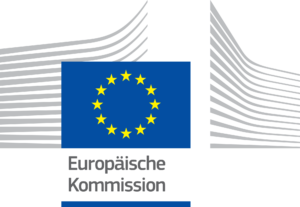- EU needs visionary digital agenda
- eco core demands for a modern digital policy in Europe
Yesterday evening in Strasbourg, Ursula von der Leyen was elected as the new President of the European Commission by the Members of the European Parliament. The President-elect of the Commission had already published her political agenda for Europe: the Political Guidelines for the Next European Commission 2019-2024 are intended to ensure that Europe plays a lead role in the transition to a new digital world. To this end, among other policies, von der Leyen intends: to tax large digital companies, to provide more financial support for artificial intelligence, to forward legislation for a coordinated European approach to the ethical aspects of artificial intelligence, and to establish a “cyber unit” to accelerate the exchange of information in the EU.
eco: EU needs visionary digital agenda
“The new legislative term represents an opportunity for the EU Parliament and Commission to start a new chapter in European digital policy and, through a common visionary and sustainable digital agenda, to give fresh impetus to Europe as a digital location. In order to position Europe as a key player in an economically globalized society, it needs a strong – digitally comprehensive – Single Market. Digitalization can only become a successful model for Europe if the EU recognizes its opportunities and develops them into a locational and competitive advantage,” stresses the Association of the Internet Industry.
The preliminary plans of the new EU Commission President von der Leyen both testify to the fact that she has recognized the urgency of digital issues, and pinpoint some key issues for European digital policy.
“When it comes to the Digital Services Act called for by the new EU Commission President von der Leyen, it is critical that the solid and tested legal framework for the provision of digital services is not undermined and jeopardized by inconsistent amendments to the e-Commerce Directive. The fundamental principles of responsibilities and the fundamental principles of the Internet should not be up for debate. The e-Commerce Directive forms the foundation for the Internet in its current form and provides digital businesses with the legal certainty they need to deliver their services. Abolishing the Notice and Action principle would have a massive negative impact on small and medium-sized European Internet service provider companies,” cautions eco.
Technical developments will continue in the coming years and legislative challenges will continue to rise accordingly. With the strengthening and promotion of artificial intelligence and blockchain technologies, important key technologies for Europe as an industry location have already been identified. The focus on small and medium-sized enterprises is also important, because Germany and Europe’s economies are shaped by SMEs. It will be all the more important for the future EU Commission to resolutely and systematically implement a modern Internet policy. For this to happen, Europe needs a comprehensive digital agenda.
eco takes a critical view of the much discussed plans for a digital tax.The future EU Commission should instead advocate a uniform taxation system that taxes all companies according to the same principles. Especially in view of the fact that the OECD is also working on a solution for working with digital business models in the context of company taxation, unilateral European initiatives should be postponed until these deliberations have been concluded, exhorts the Association of the Internet Industry.
eco’s core requirements for a modern digital policy in Europe
In order to make optimum use of the opportunities and potential of the digital transformation for a common European Digital Single Market and for Germany as an industry location, the appropriate framework conditions must be created and central political paths for change must be paved. eco has summarized the most important topics and fields of action of the European Internet industry in an EU agenda with the (20)19 core Internet policy demands of the Internet industry.
The detailed version of eco’s 19 core digital policy requirements is available online here.




